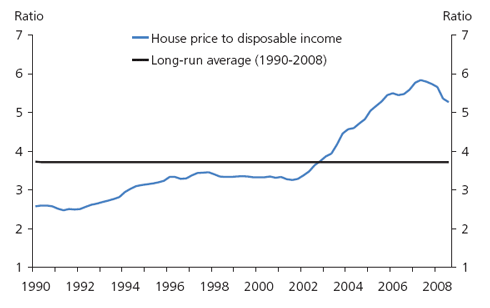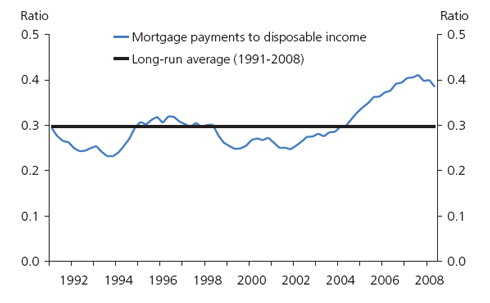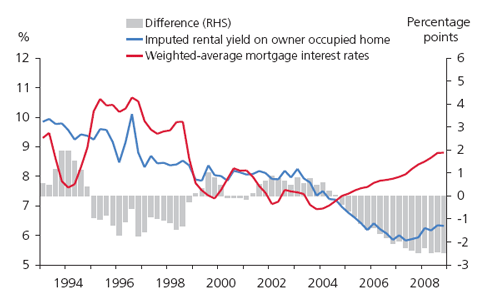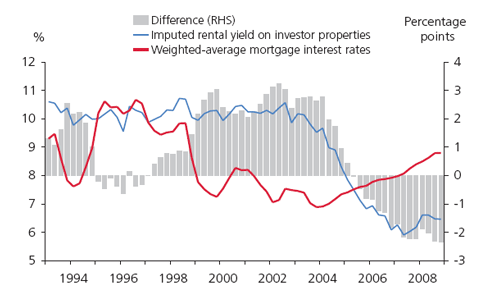The Reserve Bank has reiterated its warnings that house prices remain over valued, despite initial signs that the housing market has stabilised. Deputy Governor Grant Spencer told a news conference after the release of the bank's May Financial Stability Report (FSR) that it was too early to call the end of the property downturn.  Here's the full comments in the FSR. I recommend anyone involved in housing lending read figure 3.12 on page 20 of the FSR. It should be printed out and pinned on every lending manager's wall. It should also be handed to every budding property investor. Here are the comments below verbatim from the FSR.
Here's the full comments in the FSR. I recommend anyone involved in housing lending read figure 3.12 on page 20 of the FSR. It should be printed out and pinned on every lending manager's wall. It should also be handed to every budding property investor. Here are the comments below verbatim from the FSR.
"Despite recent declines, house prices still appear to be somewhat overvalued relative to fundamentals (figure 3.12). Lower mortgage rates are likely to reduce households' debt servicing burden back towards the historical average, but further falls in property values will be required to return house prices to more normal levels relative to disposable income.  "There are, however, some tentative signs that the price declines may start to moderate over the next few months, with buyer demand supported by inward migration and lower interest rates. Real estate agents reported a sharply higher number of residential property sales in March and the value of mortgage approvals has increased.
"There are, however, some tentative signs that the price declines may start to moderate over the next few months, with buyer demand supported by inward migration and lower interest rates. Real estate agents reported a sharply higher number of residential property sales in March and the value of mortgage approvals has increased.  "Moreover, the New Zealand banks' ongoing commitment to work with distressed borrowers and avoid unnecessary mortgagee sales should help to avoid a surge in supply that would further depress prices "“ a dynamic that has been clearly evident in the US.
"Moreover, the New Zealand banks' ongoing commitment to work with distressed borrowers and avoid unnecessary mortgagee sales should help to avoid a surge in supply that would further depress prices "“ a dynamic that has been clearly evident in the US.  New Zealand households continue to have access to credit, although the banks have clearly tightened mortgage lending standards in response to the more challenging economic environment and rise in unemployment. Annual growth in lending to households has slowed substantially over recent months, but less abruptly than in other countries, suggesting that the current weakness in credit growth reflects subdued demand as well as supply constraints."
New Zealand households continue to have access to credit, although the banks have clearly tightened mortgage lending standards in response to the more challenging economic environment and rise in unemployment. Annual growth in lending to households has slowed substantially over recent months, but less abruptly than in other countries, suggesting that the current weakness in credit growth reflects subdued demand as well as supply constraints."

We welcome your comments below. If you are not already registered, please register to comment
Remember we welcome robust, respectful and insightful debate. We don't welcome abusive or defamatory comments and will de-register those repeatedly making such comments. Our current comment policy is here.